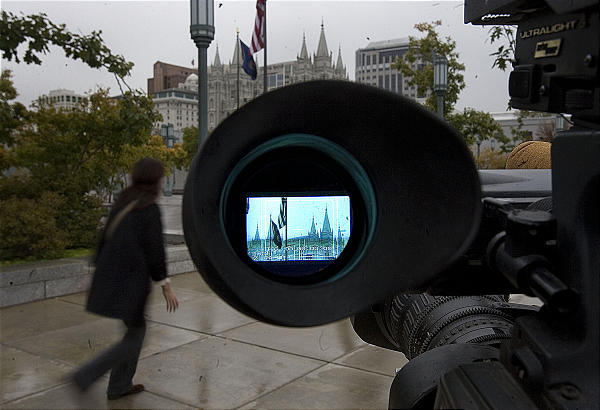Listener and viewer must be central to our broadcasting regime
 Today, the much anticipated Broadcasting Bill 2008 was at Second Stage in the Seanad. Below is my speech on the Bill.
Today, the much anticipated Broadcasting Bill 2008 was at Second Stage in the Seanad. Below is my speech on the Bill.
I welcome the Bill’s publication. As the Minister for Communications, Energy and Natural Resources stated last week, it is detailed and comprehensive legislation that proposes to amend and repeal broadcasting legislation dating back more than 50 years. It is a significant and unprecedented achievement and I congratulate the Minister and his officials on putting together in one Bill all of these initiatives and regulations in respect of the independent and public broadcasting sectors.
I agree that the listener and the viewer should be central to the debate and our broadcasting regime, an aspect of the Bill that the Minister emphasised. It must not be a matter of the promotion of individual interests, including those of public or private sector broadcasters. I will revert to this issue when I address the Sound and Vision Fund referred to in the Bill. It is a question of putting the listener and the viewer centre stage in determining what type of broadcasting regime we desire.
The Bill contains a number of welcome innovative provisions. For example, section 8 proposes to involve the joint committee in the appointment of members of the authority’s board and the RTE board. The Minister stated that some Members - he seemed to refer to Fine Gael Members, but they can speak for themselves - may have favoured a procedure for vetting proposed board members as opposed to a formal proposing role. He indicated his preference for the latter, in respect of which I support him. The committee should have a more proactive role in the appointment of board members of the authority and RTE and its involvement should have substance.
As well as addressing the broad sweep of requirements in a broadcasting regime, the legislation maintains RTE and TG4 but deals with them separately. The relevant sections seem faithfully to repeat what has gone before while also seeking to modernise and streamline many of the provisions relating to public broadcasters. The legislation includes several significant and innovative changes. The Minister referred to the introduction of an Oireachtas channel. This is something we have raised in the House on previous occasions. It is an important development and I hope it will be operational sooner rather than later. There was a suggestion that it would be launched next year. I urge the Minister to do what he can to expedite it.
I reflected on the Minister’s statement on the last occasion that one of his objectives in bringing forward this legislation is to shift the legislative basis of the television licence regime from wireless telegraphy to broadcasting legislation. One may wonder what that means. For many years, we have had an anachronistic approach to broadcasting, although there has been some change in this regard in the last ten or 20 years. For a long time, however, the attitude of the Government, Civil Service and of many politicians was proprietorial.
It is not so long ago that the Taoiseach’s hero, Mr. Seán Lemass, declared that RTE had been set up by legislation as an instrument of public policy and, as such, was responsible to the Government. He further stated that the Government rejected the view that “RTE should be, either in general or in regard to its current affairs and news programmes, completely independent of Government supervision”. Mr. Lemass made that statement in the 1960s in reference to the 1960 legislation which will be repealed by this Bill. There are echoes of this attitude from time to time in this Chamber when Members are upset by something they see on RTE. However, in general, the view put forward by Mr. Lemass is no longer part of our culture. It is important that we have put our view of broadcasting onto a new plane, one that is more intelligent and more faithful to the purpose of broadcasting. Public service broadcasting should not be an instrument of public policy - and especially not of Government policy - but rather a vital aspect of our democratic system and culture in the broadest possible sense.
